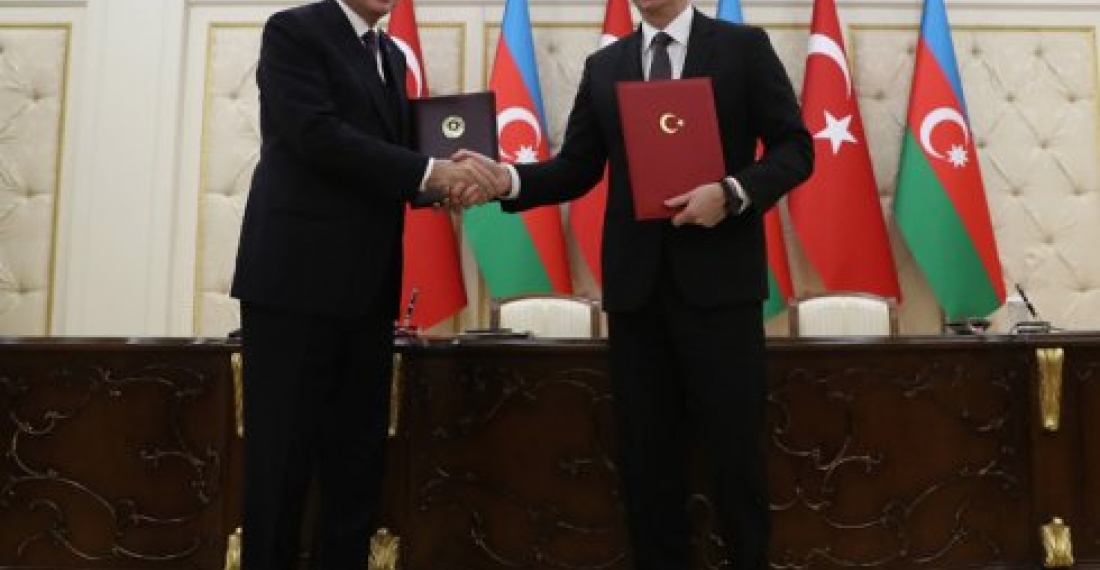Turkey and Azerbaijan aim to increase the level of trade between them up to US$ 15 billion by 2023. This was stated by the leaders of the two countries who met in Baku on Tuesday (25 February). Turkish President Recep Tayyip Erdoğan and President Ilham Aliyev of Azerbaijan participated in a meeting of the Turkey-Azerbaijan High Level Strategic Cooperation Council and afterwards addressed a press conference.
Drawing attention to the 14 documents signed at the end of the meeting, President Erdogan singled out the preferential trade agreement among these documents as of critical importance. "In 2019, we had a trade volume of nearly $4.5 billion. Our goal is to increase this amount to $15 billion by 2023. We should achieve this. In this respect, the preferential trade agreement we have signed today is of great significance. We will deepen our cooperation in every area from customs to agriculture, energy to transportation, and technology to tourism", he said.
The Nagorno Karabakh issue was also discussed during the meeting. Erdogan told journalists at the press conference that the Karabakh issue is of as much concern to Turkey as it is to Azerbaijan. "It is our biggest desire that the Nagorno-Karabakh problem be solved on the basis of Azerbaijan's sovereignty and territorial integrity. We will continue our support for Azerbaijan's rightful fight", he added.
source: commonspace.eu with agencies
photo: The presidents of Turkey and Azerbaijan at their meeting in Baku on 25 February 2020 (picture courtesy of the press service of the Turkish Presidency)






